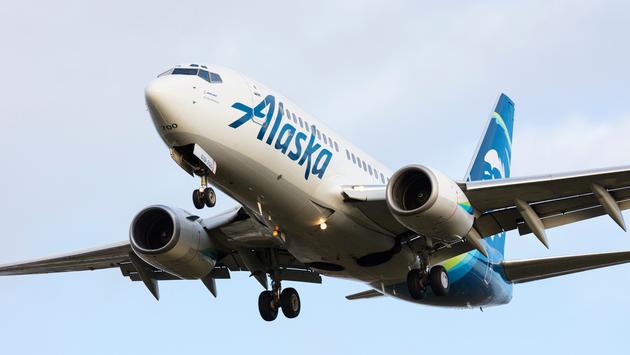Alaska Airlines Foresees $150 Million Loss Due to 737 Max Grounding

Alaska Airlines anticipates a significant financial impact from the grounding of the 737-9 fleet. Following an incident on January 5 that resulted in substantial damage to one of its aircraft, the airline estimates the grounding will cost approximately $150 million.
This financial hit is notable for Alaska, which reported $38 million in adjusted income for the last quarter of the year and a total of $583 million for the year. Despite surpassing forecasts for the fourth quarter, the airline faces a considerable challenge with this loss.
The January 5 incident, which involved a door plug blowing off mid-flight, creating a hole in the aircraft, prompted the Federal Aviation Administration (FAA) to ground all 737-9 jets. Alaska Airlines, possessing the second-largest 737-9 fleet after United Airlines, finds itself significantly affected. United has also projected a first-quarter loss, partly attributed to the grounding costs.
On Wednesday, the FAA outlined the inspection procedures necessary to return these aircraft to service. Alaska Air expects to resume operations with its first grounded jet on Friday, with additional aircraft returning to service daily following thorough inspections.
The airline’s CFO, Shane Tackett, expressed confidence in being compensated for the grounding’s impact on profits during a call with investors. However, details of this compensation from Boeing remain unspecified.
Despite the temporary suspension, Alaska Airlines CEO Ben Minicucci anticipates passengers will regain confidence in the 737-9. He recalled a similar sentiment following the 20-month grounding of all Max models due to two fatal crashes.
Even with the projected resumption of flights, the grounding will result in about 3,000 canceled flights this month, reducing overall capacity by roughly 7% for the quarter.
In a recent NBC interview, Minicucci mentioned finding “some loose bolts on many” Boeing 737-9 jets during inspections. Despite these issues, he reaffirmed the airline’s commitment to Boeing, emphasizing the need for improved quality from the manufacturer. Alaska Airlines has a significant number of 737s, including future deliveries, and plans to maintain its Boeing-focused fleet strategy.
Alaska Airlines still expects to report a profit for 2024, ranging between $381 million to $635 million, though this may fall short of analyst predictions.
Regarding other U.S. carriers, Southwest Airlines reported expected delays in receiving their 737 Max orders. The FAA’s recent decision to limit 737 Max production growth may affect Southwest’s 2024 deliveries. Southwest CEO Bob Jordan expressed support for measures that enhance Boeing’s product quality.
American Airlines CEO Robert Isom also emphasized the importance of Boeing delivering quality aircraft without delay. He underscored the critical need for the manufacturer to ensure consistent production standards.
Southwest, which operates an all-Boeing 737 fleet, including a significant number of 737-8 jets, does not currently operate or have orders for the 737-9 model. Jordan expressed confidence in Boeing’s ability to resolve issues and in Southwest Airlines’ reputation with its customers.
Sources: AirGuide Business airguide.info, bing.com, cnn.com
